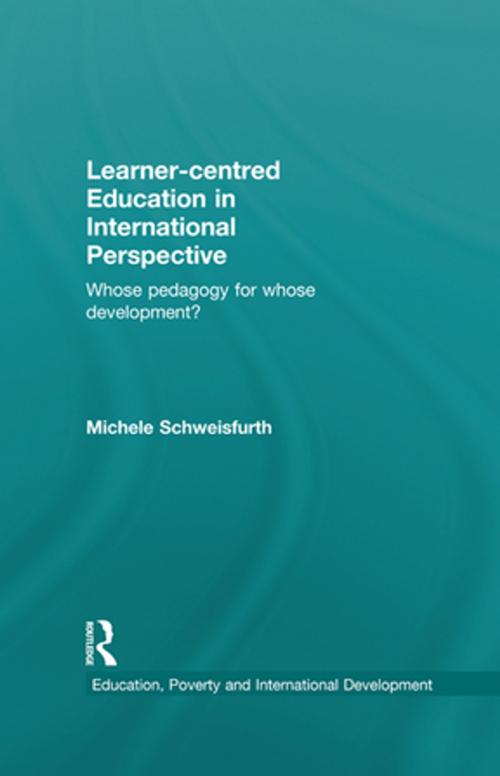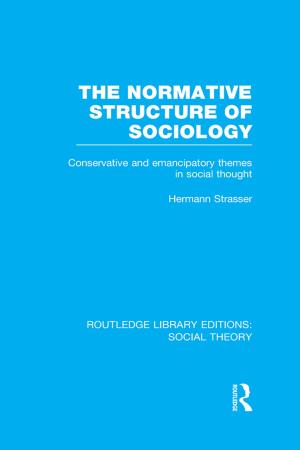Learner-centred Education in International Perspective
Whose pedagogy for whose development?
Nonfiction, Reference & Language, Education & Teaching| Author: | Michele Schweisfurth | ISBN: | 9781136729126 |
| Publisher: | Taylor and Francis | Publication: | March 12, 2013 |
| Imprint: | Routledge | Language: | English |
| Author: | Michele Schweisfurth |
| ISBN: | 9781136729126 |
| Publisher: | Taylor and Francis |
| Publication: | March 12, 2013 |
| Imprint: | Routledge |
| Language: | English |
Is learner-centred education appropriate for all societies and classrooms?
Learner-centred education (LCE) is a travelling policy, widely promoted by international agencies and national governments. Arguments in favour of this pedagogical tradition refer to theories and evidence from cognitive psychology, claiming that all learners can benefit equally from its judicious use. Beyond the benefits to the individual however, lie a set of assumptions about learner-centred education as a foundation for the building of democratic citizens and societies, suitable for economies of the future. These promises have been questioned by critics who doubt that it is appropriate in all cultural and resource contexts, and there is considerable evidence in the global South of perennial problems of implementation.
In the light of these debates, is LCE still a good development ‘bet’? This book provides an authoritative and balanced investigation of these issues, exploring the contextual factors from global movements to local resourcing realities which have fuelled it as a discourse and affected its practice. In the light of the theoretical underpinnings and research evidence, the book addresses pressing questions: to what extent is learner-centred education a sound choice for policy and practice in developing countries? And if it is a sound choice, under which conditions is it a viable one?
The book is divided into three key parts:
- Learner-centred Education as a Global Phenomenon
- Learner-centred Education in Lower and Middle-income Countries
- Lessons and Resolutions
This bookprovides a much-needed fresh analysis of the concept and practice of LCE. It will be valuable reading for academics and post-graduates with a focus on comparative and international education, along with policy-makers in developing countries and development agencies.
Is learner-centred education appropriate for all societies and classrooms?
Learner-centred education (LCE) is a travelling policy, widely promoted by international agencies and national governments. Arguments in favour of this pedagogical tradition refer to theories and evidence from cognitive psychology, claiming that all learners can benefit equally from its judicious use. Beyond the benefits to the individual however, lie a set of assumptions about learner-centred education as a foundation for the building of democratic citizens and societies, suitable for economies of the future. These promises have been questioned by critics who doubt that it is appropriate in all cultural and resource contexts, and there is considerable evidence in the global South of perennial problems of implementation.
In the light of these debates, is LCE still a good development ‘bet’? This book provides an authoritative and balanced investigation of these issues, exploring the contextual factors from global movements to local resourcing realities which have fuelled it as a discourse and affected its practice. In the light of the theoretical underpinnings and research evidence, the book addresses pressing questions: to what extent is learner-centred education a sound choice for policy and practice in developing countries? And if it is a sound choice, under which conditions is it a viable one?
The book is divided into three key parts:
- Learner-centred Education as a Global Phenomenon
- Learner-centred Education in Lower and Middle-income Countries
- Lessons and Resolutions
This bookprovides a much-needed fresh analysis of the concept and practice of LCE. It will be valuable reading for academics and post-graduates with a focus on comparative and international education, along with policy-makers in developing countries and development agencies.















